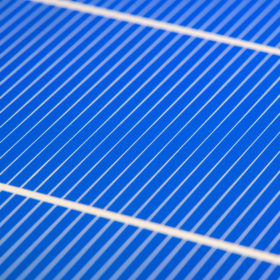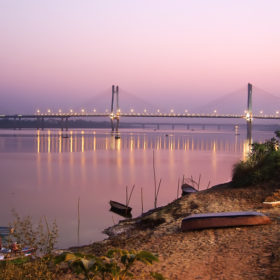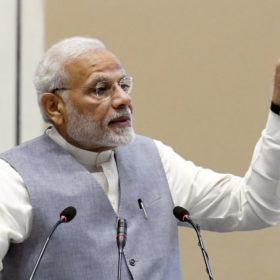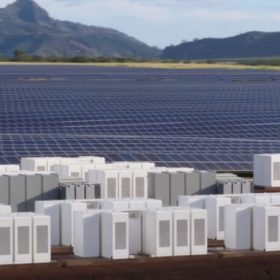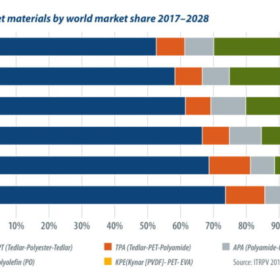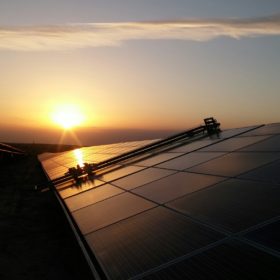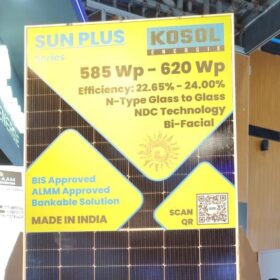TOPCon: The next big thing after PERC
TOPCon technologies could further increase solar cell efficiencies, said Guangyao Jin, chief scientist, DuPont Photovoltaic Solutions, at this year’s Energy Taiwan, held in September. He added that metallization paste is crucial.
Gujarat will soon tender 250 MW solar+storage capacity
Saurabhbhai Patel, Minister of Energy, Government of Gujarat, has announced that the state will soon issue a 250 MW grid-connected solar tender linked with storage. He also said that Gujarat will add more than 5 GW of new PV capacity in the next three years.
Uttar Pradesh will tender another 500 MW solar capacity by end of October
The recent 500 MW grid-connected solar capacity tendered by the Uttar Pradesh New and Renewable Energy Development Agency (UPNEDA) was oversubscribed by 250 MW. A reverse auction will now be held on October 9. The capacity is part of the previous 1 GW tendered capacity, which was oversubscribed by around 800 MW, but cancelled due to high tariffs
Softbank’s Son makes more big announcements: Free electricity after 25 years
In another ambitious announcement, SoftBank Group CEO, Masayoshi Son has said he will give free power from solar power projects after 25 years of PPA to all ISA member countries. He was speaking at the Indian Government organized RE Invest 2018.
PM Modi: 40% electricity generation from non-fossils by 2030, up to $80 billion for PV manufacturing
India’s Prime Minister kick started the first Assembly of the ISA, the second IORA Renewable Energy Ministerial Meeting, and the 2nd Global RE-Invest yesterday in Greater Noida. The agenda of the day? Universal access to solar energy at affordable rates; securing 40% of India’s electricity generation from non-fossil fuels by 2030, and allocating up to US$80 billion to boost domestic PV manufacturing.
Opening green windows for an inclusive clean energy transition: Future financing tools
In recent years, the Ministry of New and Renewable Energy (MNRE) has laid the foundation for a clean energy expansion through robust policies and initiatives. India’s solar energy capacity has jumped a thousand-fold from a mere 17 MW in 2010, to more than 23 GW in 2018. Similarly, the wind market has more than doubled in recent years, from around 13 GW of installed power in 2010, to 34 GW by June 2018. These developments help move India closer to its ambitious clean energy goal of 175 GW installed capacity by 2022. However, in spite of several public financial institutions, private banks, and non-banking financial companies (NBFCs) providing capital, financing remains a key barrier in scaling India’s clean energy markets further.
Frost & Sullivan forecasts strong 2018 for solar, despite China’s policy setback
A new report published by business consultants Frost & Sullivan expects around 90 GW of new solar installations by the end of 2018, in line with the predictions of other leading analysts. It further notes that PV remains the world leader in renewable energy capacity, and that markets are moving away from feed-in tariffs to make increasing use of auction models and private PPAs.
Taiwan takes India to WTO over safeguard tariffs
Taiwan has joined Malaysia in requesting consultations with India under the safeguard agreement of the World Trade Organization (WTO), following India’s decision to impose 25% safeguard duties on imports of solar cells, whether or not assembled in modules.
The long read: Backsheets to the future
As backsheet manufacturers aim to keep up with cost reductions up and down the PV supply chain, new processes and materials are appearing, with claims to offer better performance as a moisture barrier, as well as better acetic acid permeability and higher reflectivity, among other features. pv magazine examines the state of the market for PV backsheets, and takes a look at some of the new material innovations that are gaining ground with module manufacturers.
Solar PV to grow 65-fold by 2050, 2°C target will be missed by a long shot – report
DNV GL has issued its annual Energy Transition Outlook. It reports that global electricity demand is set to grow by a factor of 2.5. Over half of this demand is expected to be met with renewable energy by 2050, while storage will play a key role. It adds that grid infrastructure expenditures are less related to variable renewable energy assets than to increasing energy demand. In the current scenario, meanwhile, global warming is likely to reach 2.6°C.
